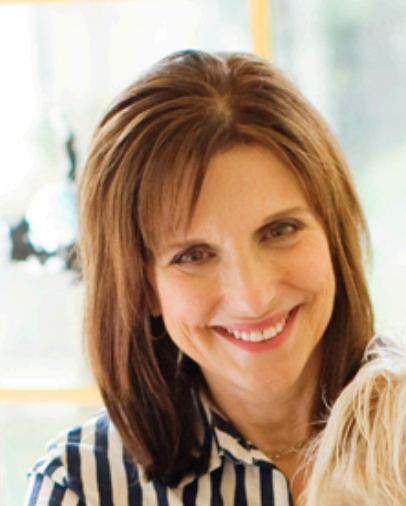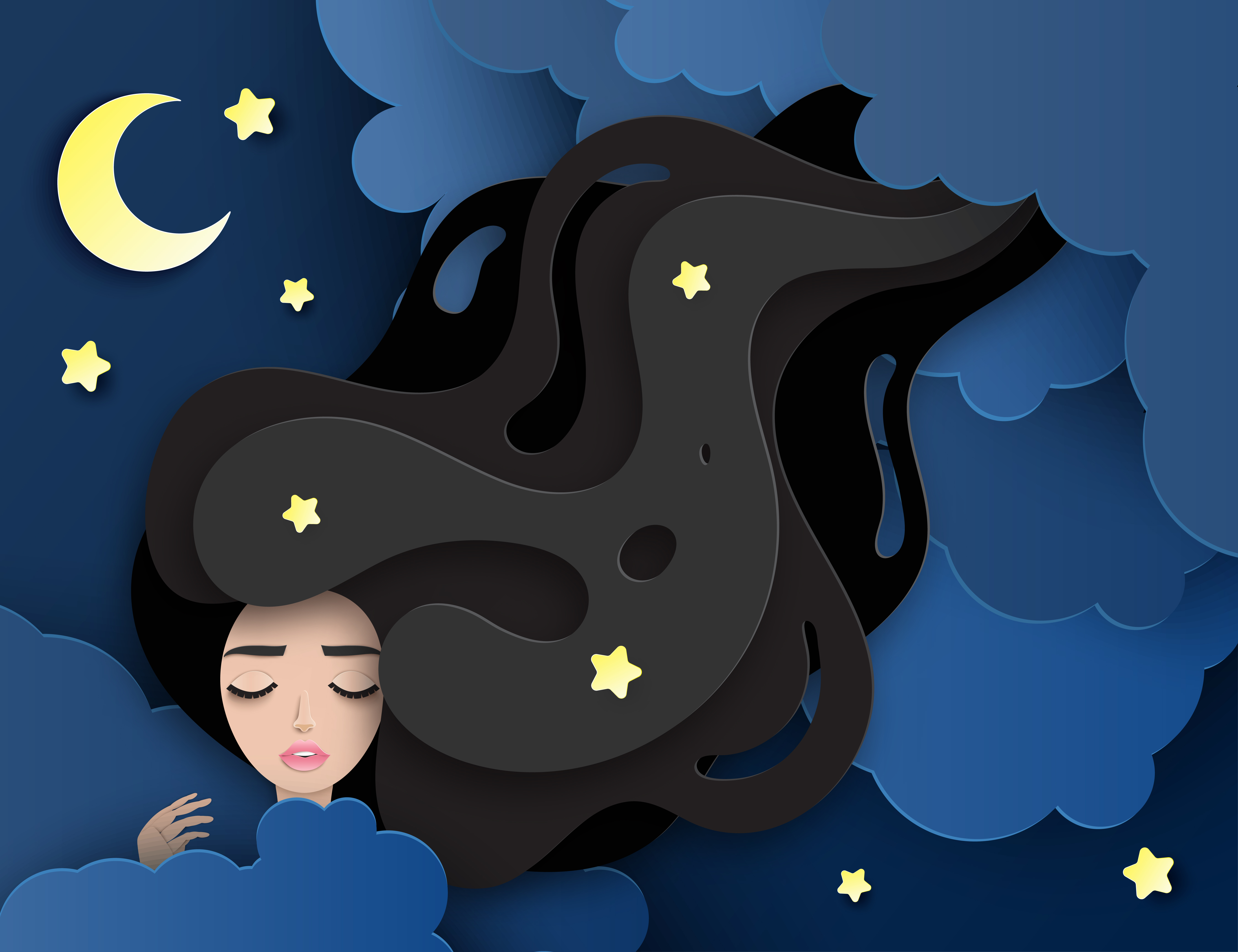Throughout history, dreams have played an integral role in culture, society and religion. In the Bible, dreams were viewed as prophetic. According to the ancient Greeks and Egyptians, dreams were messages from the Gods. In his compelling new book, The Nocturnal Brain, Dr. Guy Leschziner, M.D., Ph.D., a neurologist and head of the Sleep Disorders Center at Guy’s Hospital in London, relates dramatic, true case stories about his patients with extreme sleep disorders. Here, Dr. Leschziner explains what we can learn from dreams and nightmares.
Thrive Global: What happens when we dream?
Guy Leschziner: When we talk about dreaming, we typically mean dreams with a narrative structure and plot, like a film unveiling itself in our mind’s eye, which are strongly associated with REM (rapid-eye movement) sleep. But we now also understand that we have dreams of sorts in non-REM sleep too — they’re usually little snippets of experiences or visual images.
TG: Some of your patients have dramatic nighttime experiences. Can you describe them?
GL: John acts out his dreams, punching and kicking his way through the night as he fights off tigers or brawls with people. In normal REM sleep we are almost entirely paralysed, but in John’s case, his paralysis is incomplete. Others have abnormal behaviors arising from non-REM sleep (non-REM parasomnias), commonly known as sleepwalking. One patient, Jackie, rides her motorcycle in her sleep. Another, Alex, goes around the house placing glasses of water next to all his sleeping housemates! He’s also been witnessed picking up his friend’s shoe and trying to order pizza on it, imagining that it’s a phone! Some cases are funny, but for others, these behaviors can result in convictions for criminal acts, or damage to themselves or the people around them.
TG: What can we learn from these extreme dreams?
GL: In John’s case, we now know that the loss of paralysis in REM sleep is often an early warning of conditions like Parkinson’s disease. But in the others who have non-REM parasomnias, when we study their brains, the parts responsible for rational thinking or memory remain in deep sleep, while those responsible for movement or strong emotions are very active, so the “dreamers” seem to be awake. This leads to their bizarre behavior. But the brain’s ability to be in different states of sleep and be awake simultaneously may have relevance to our waking lives, too.The more sleep-deprived we are, small areas of the brain may constantly go to sleep, perhaps explaining why we function less well when we’re tired.
TG: What is lucid dreaming?
GL: Lucid dreaming is when we have awareness of our dreams while we are in REM sleep, and we can, to some extent, control the content and direction of those dreams. It’s almost as if you have a director’s role in the plot of the film that’s playing in your mind. It is not something we all have. Some people can do it, or learn to do it. But people with narcolepsy, a neurological disorder that results in individuals falling asleep very easily during the day, are much more likely to experience lucid dreaming. People with narcolepsy flick in and out of REM sleep too easily, making lucid dreaming more likely to occur.
TG: How do lucid dreamers help you find out more about dreams?
GL: In experiments, you can ask them to influence the content of their dreams. So you can say: “I want you to dream that you are playing the piano,” and then you study whether those individuals actually learn how to play more quickly because of their dreams. That is a phenomenally good piece of evidence to show that dreaming can improve memory or motor function. It is an experimental playground for dream researchers, who are currently doing these kinds of studies.
TG: Philosophers and psychoanalysts from Sigmund Freud to Carl Jung have had theories about the significance of our dreams. What’s your view?
GL: I think the psychoanalytic Freudian view, that dreams tell us about our innate desires or censored feelings, is probably not correct. But if you look at people with PTSD (post-traumatic stress disorder), they will often have recurring dreams related to the stressful event. In the past, certain neuroscientists have suggested that actually dreaming is just rubbish churned out by the brain in REM sleep. But the dreams of people with PTSD show that’s absolutely not the case. They tell us that one of the roles of dreams is emotional processing. We know that REM sleep constitutes about a third of babies’ lives, even before they are born. But if they are dreaming during REM sleep, the question is, what is it that they’re dreaming about? It’s likely that dreaming associated with REM sleep has different functions at different stages of life.
TG: Can dreams be healing?
GL: Certainly there is evidence that dreaming has a function in terms of reinterpreting your past experiences, while trying to dampen down their emotional context. So, yes, one could consider it a form of psychological healing. Neuroscientist Matthew Walker, the author of Why We Sleep, refers to it as “overnight therapy.”
TG: How interesting is it to you that dreams have fascinated cultures since the beginning of recorded history?
GL: It is fascinating. For example, in the British Museum in London, they have a papyrus document: The Egyptian Dream Book. It is too fragile to be left on display, but if you ask very nicely, they will pull it out of their collection for you to look at. This papyrus, dating back to about 1220 B.C., details 108 different types of dreams, and prophecies associated with those dreams. But there are countless examples throughout history of the spiritual or prophetic nature of dreams.
TG: What’s your view?
GL: Coming from a rationalist, scientific perspective, my own view is that probably when we’re dreaming, we’re integrating all our experiences over the course of our lives in order to make sense of the world around us.
TG: Can dreams be prophetic, for example a dream that you’ve got the job you want?
GL: I think the brutal answer is no. You probably already know the likely outcome and when your brain is making order of all your experiences, that’s integrated into your dream narrative. You know that you’ve done well in the job interview, that you have the perfect resumé, and that’s perhaps illustrated by the fact that you dream you’ve got the job!
TG: What do nightmares tell us?
GL: They are vivid dreams — unpleasant or frightening. If your dream has a strong negative emotional context, it is more likely to wake you up. They can be driven by your emotional or psychological state. So it is worth addressing those issues, because that is going to improve your odds of having a peaceful night’s sleep. Nightmares can also tell you that there may be something else disrupting your REM sleep. Apart from stress and anxiety, other disrupters include sleep apnea — disturbed breathing at night resulting in partial awakenings, which mean you are more likely to recall your dreams or nightmares.
TG: What are your recommendations for a peaceful night’s sleep?
GL: Avoid caffeine after lunch. Avoid alcohol, because although alcohol is a sedative, it disturbs the quality of your sleep. Keep electronics out of the bedroom. Try to keep regular bedtimes and wake-up times. If you have stress in your life, use mindfulness based stress reduction, relaxation therapy or cognitive behavioral therapy (C.B.T.) for insomnia. Take the time to understand your own sleep. If you know that you can drink an espresso before you go to bed and you’re going to have a really good night’s sleep regardless, then don’t worry about it.
TG: What’s your view on prescription or over-the-counter drugs for sleeping?
GL: I’m very keen to avoid drug-based treatments if possible. They increase the risk of road traffic accidents or falls in the middle of the night. They are potentially addictive and they don’t simulate natural sleep, they just sedate. And there are increasing concerns about the long-term risks of some drugs on brain health.
TG: How excited are you about the developments in sleep medicine and the growth of interest in the subject?
GL: We are in exciting times. With advances in technology — like good quality, long-term sleep trackers — we’ll be able to understand the impact of what sleep does for us. It’s the shame of our profession that it’s taken this long to understand that something we spend a third of our lives doing is fundamental to our well-being. It’s fantastic that through the work of Arianna Huffington [Thrive Global’s founder and CEO] and others, the message is reaching the broader population. So rather than people feeling that sleep gets in the way of life, we are fully prioritizing it as part of a healthy life.
TG: Finally, do you have any recommendations for people who want to learn more about their dreams?
GL: Keeping a dream diary at the very least would provide a fascinating insight into your nocturnal life. It may even permit an understanding of your worries or preoccupations.


